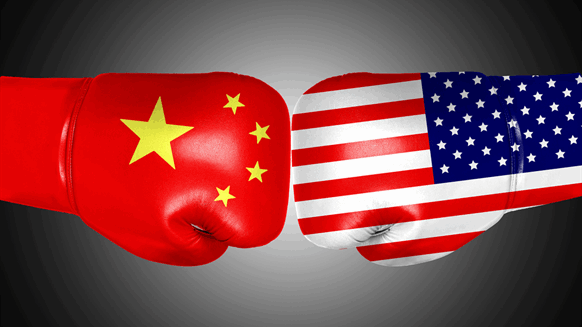
In the latest chapter of the trade dispute between the U.S. and Chinese governments, the Trump administration has ordered the Office of the U.S. Trade Representative (USTR) to initiate the rollout of a new, larger set of tariffs on Chinese imports, USTR stated Tuesday.
“On Friday, in response to unfair Chinese practices, the United States began imposing tariffs of 25 percent on approximately $34 billion worth of Chinese imports,” USTR Robert Lighthizer said in a July 10 press release. “These tariffs will eventually cover up to $50 billion in Chinese imports as legal processes conclude. The products targeted by the tariffs are those that benefit from China’s industrial policy and forced technology transfer practices.”
According to the USTR official, China took action “without any international legal basis or justification.” He went on to say that President Trump has subsequently ordered USTR to “begin the process of imposing tariffs of 10 percent on an additional $200 billion of Chinese imports.”
The Trump administration’s latest tariff proposal would affect 6,031 product classifications. To review a list of products of interest to the oil and gas and chemicals industries, scroll down from page 45 of this document.
In response to the latest USTR announcement, the head of the American Fuel and Petrochemical Manufacturers (AFPM) told Rigzone that tariffs imposed by both the United States and China would be a losing proposition for both sides.
“Thanks in part to President Trump’s deregulatory and tax cutting agenda, America is moving toward its goal of energy security,” said AFPM President and CEO Chet Thompson. “Chinese tariffs on our energy and petrochemical exports would be counterproductive and hurt both countries. We hope the administration and the Chinese can come to agreement as soon as possible to avoid that damage.”
In a written statement, the American Chemistry Council (ACC) called the potential 10 percent tariff on $200 billion of additional imports from China “a stunning and unfortunate development for U.S. manufacturers and consumers.”
“Unilateral actions that alienate long-standing U.S. allies and close off the U.S. market to the rest of the world are not a recipe for economic growth and prosperity and are very unlikely to change China’s unfair practices,” stated ACC, which urged the Trump administration to form a “strong, multilateral coalition” to end the trade war.
“As an industry that touches 96 percent of all manufactured goods and which has much to gain from a productive, respectful trading relationship with China, ACC and our members remain hopeful that the U.S. and China can resolve their differences and prevent further harm to U.S. manufacturers, farmers and consumers,” the organization said.



